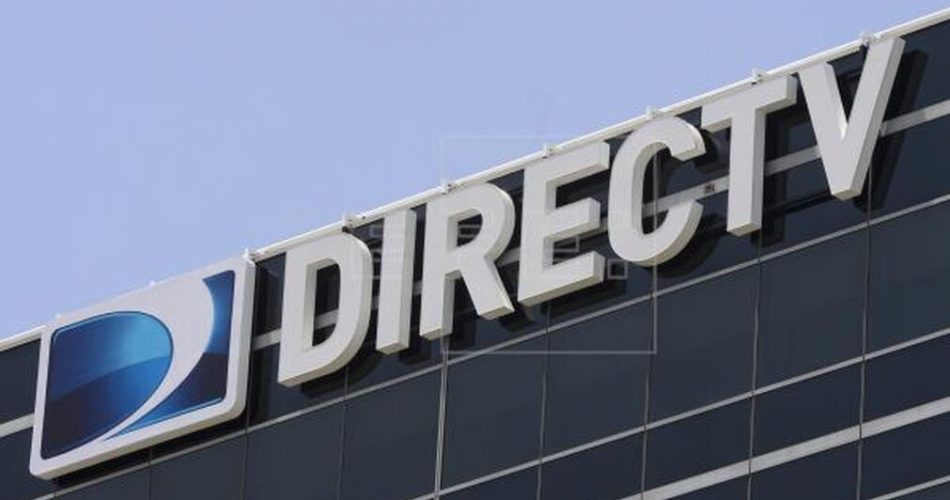RIO DE JANEIRO, BRAZIL – The Venezuelan government started confiscating assets of the US telecommunications multinational AT&T. The company had closed its subsidiary DirecTV last week in order to avoid impending US sanctions. More than two million households and 600 employees are affected.
The television satellite operator DirecTV had a market share of about 46 percent and offered 300 channels. The government of President Nicolás Maduro now wants to put it back into operation.

At least three Caracas installations belonging to the US telecommunications multinational have reportedly been occupied by the state regulator CONATEL and the Bolivarian Armed Forces over the weekend, including its transmission center in Los Caobos, main administrative headquarters in El Rosal, and principal commercial office in Las Mercedes.
The actions came on the heels of a Friday ruling by the Supreme Court’s Constitutional Chamber in favor of the “Customer Front in Defense of Communications Rights” consumer rights group.
As part of the verdict, CONATEL was authorized to take control of the Texas-based firm’s “property and goods, commercial offices, administrative headquarters, operational and transmission centres, antennas and any other equipment or installations.” The judgement likewise ordered the body to re-establish the cable TV service immediately, as well as “protect workers’ rights.”
Similarly, a new ad-hoc board is to be named and presided over by CONATEL Director General Jorge Marquez. The Bolivarian National Guard brigadier-general also serves as minister for the presidential office and was sanctioned by Washington in 2017.
In addition, the Supreme Court imposed a travel ban on the former directors of AT&T’s subsidiary in Venezuela, DirecTV, as well as the freezing of all personal assets. Banking regulators SUDEBAN were also instructed to halt all customer payments processed since the service was interrupted.
AT&T announced it was closing its DirecTV cable TV service in the country last Tuesday, citing a legal contradiction generated by the “impossibility to comply” with both Venezuelan law and US sanctions.
Venezuelan law dictates that cable and satellite providers are obligated to dedicate eight percent of their total programming to nationally broadcast channels, including state-run PDVSA TV and privately-held Globovision, both of which have been sanctioned by the US.
AT&T announced it was withdrawing from Venezuela with immediate effect, a decision which was taken without consulting local management, to avoid exposure to US Treasury Department punitive measures. The decision was apparently taken without consulting local management.
President Nicolás Maduro was quick to point the finger for the closure at opposition leader Juan Guaidó on Sunday, alleging that he had worked with Washington to “pressure” DirecTV into “eliminating people’s right to information and entertainment.”
In March, Maduro banned all telecommunications firms, as well as other service providers, from cutting off customers for six months as part of a series of protective measures under the COVID-19 lockdown.
In response to the accusations, Guaidó claimed that AT&T’s move was caused by government “censorship” rather than US sanctions.The US firm’s communiqué made no mention of Venezuelan government pressure. Guaidó also went on to suggest that his team was “fighting” to reactivate the cable service by redirecting it from abroad, where the service costs significantly more.
Analysts have received CONATEL’s seizures with mixed reactions, with some calling them “symbolic” and others pointing out the complexities of having an ad-hoc board led by a sanctioned Venezuelan government official reactivate a service which contracts TV channels, satellites and technological infrastructure owned and based in the United States.
However, the issue has dominated headlines as millions spend their eleventh week indoors as part of the COVID-19 lockdown.
Last Sunday, 111 new cases were identified, 93 of which were reportedly related to migrants returning from Colombia or Brazil. As a result, the government has unveiled plans to “strengthen” quarantine camps on the country’s borders, where returning Venezuelans are obliged to observe a 14-day quarantine period.
Despite the recent increase in infections, the government is considering relaxing the lockdown. President Maduro said on Tuesday that a plan was being worked on to relax quarantine for the country’s industrial and commercial sector, to be implemented as of next Monday.
According to official figures, there are currently 1,245 confirmed coronavirus cases in Venezuela. A total of 302 people have recovered, eleven died from or with the virus, while 865,367 tests have been carried out, Maduro said on Tuesday.

